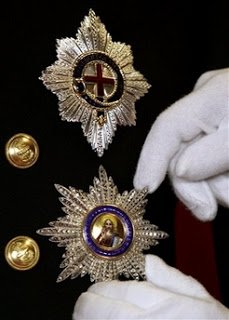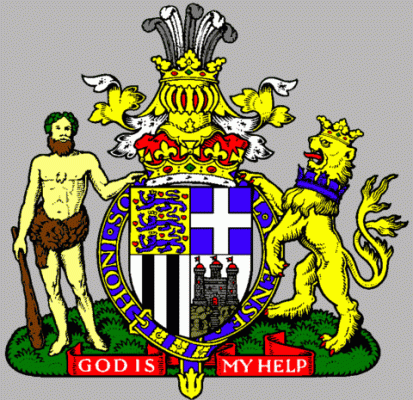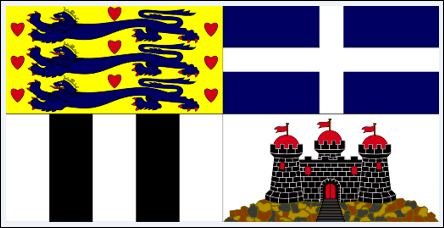^^^^ That's the evidence the Duke renounced his titles in 1947, because Jon Bloch Skipper says he did.
In the Letters patent of Oct. 22, 1948 granting the style of Royal Highness to the children of his marriage to Princess Elizabeth. In the text, he is styled "His Royal Highness Prince Philip Duke of Edinburgh
The fact is there is no document of renunciation, and there is no getting around this fact as my comment above states.
But you are looking in the wrong places! You're assuming that the documents would be held by the British, but rather they would be held by the Greeks. Prince Philip himself has given information to royal historians that he wrote to King George II of Greece in 1943 (? question mark is mine since relying on memory and not sure if '42, '43) to tell him he was planning on renouncing his place in the Greek line of succession. This letter went to King George II and is either in the Greek archives or misplaced due to the displacement of war and exile.
Your other sticking point is that Philip was already a British subject thanks to the Sophia Naturalisation Act. BUT, and this is a big but, until the mid 1950s no-one knew about the Sophia Naturalisation Act! It was one of those historical details that was buried in the mist of time. In the early 1950s Prince Ernst August of Hanover (the father of the current Ernest August) used his law degree to delved into the 1701 Act of Settlement and discovered the Sophia Naturalisation Act. He then went to the British courts to claim his British citizenship. In 1956 he managed to establish in the British courts the right of all non-catholic descendants of the Electress Sophia of Hanover to British citizenship. (By doing this those descendants whose lands (including his) had been confiscated by the communists could claim compensation as British subjects. This information comes from Marlene Eilers book, Queen Victoria's Descendants) Philip applied and was granted British citizenship in 1947 since no-one at the time knew he was already a British subject. This also cancels out the argument 'but he was already a British subject and still a Greek prince'.
Philip wanted to become a British citizen because he wanted a career in the British navy, not because he was to marry Princess Elizabeth. Reference here the excellent book by Hugo Vickers Princess Andrew of Greece. In it there is a letter dated December 1939 Alice writes to Philip to ask him to not apply for British citizenship (she obviously didn't know about the Sophia Naturalisation Act either!) as his cousin Peter (Prince Peter of Greece) had married a divorcee and was out of the Greek line of succession and Philip was the youngest Greek prince in the list. "But Freddy is pregnant again" (Freddy was Crown Princess Frederika and she duly gave birth to a son the following June) By now the war was raging and all British Naturalisations were put on hold, Philip wrote to George II to advise him that he planned on becoming naturalised.
At the war's end Philip's uncle Lord Mountbatten wrote to Anthony Eden about Philip taking out British citizenship. (an extract of this letter is in the Vickers book, original in Avon archive) George II and Princess Alice also wrote to King George VI about Philip taking out British citizenship (Also in Vickers book) None of them seemed to have known about the Sophia Naturalisation Act either!
Philip returned to the UK in January 1946 (he had been in the Far East) and he was asked again to wait before he renounced his place in the Greek line of succession, this time by King George II. George II insisted that he would not return to Greece until there was a referendum as to whether the monarchy should be restored. Philip needed to wait since it wouldn't look to good if the royals themselves were planning on leaving! The referendum was held in September 1946, the monarchy was reinstated George II returned to Greece in December and in February 1947, Philip became a British subject, giving up his Greek Titles since a British citizen can not hold a foreign title. So 9 years after he originally broached the idea of becoming naturalised, he finally became a British subject.
The paperwork involved was correspondence between the relevant parties, which may or maynot exist in private archives. Vickers had access to the Broadlands archives, the KP archives (Philip's grandmother's papers including his letters are in those archives) these are not online or necessarily open to anyone other than scholars or authors writing official biographies (such as Vickers)
Philip dealt with King George II, he had no communication with the Danish King Christian X in regards to renouncing his place in the Danish line of succession. Whether he was in it or not, someone who is better informed on the Danish succession laws than I would know. Regardless by 1953 the Danish succession was changed and only the descendants of Christian X were to be in the line of succession so Philip was out.
Once Philip became a British subject in 1947 he was no longer Prince Philip of Greece and Denmark. Just like Prince Michael of Kent once he married a catholic was no longer in the line of succession, Michael didn't renounce anything he was just off the list. Philip becoming a British subject in British records just ceased being Prince etc, etc. There was no need for paperwork, like Michael of Kent, it just happened. Philip through his correspondence with George II seemed to have made some formal request. BUT this would be in Greek archives and not the British so full circle, you were looking in the wrong place for the information you wanted.





